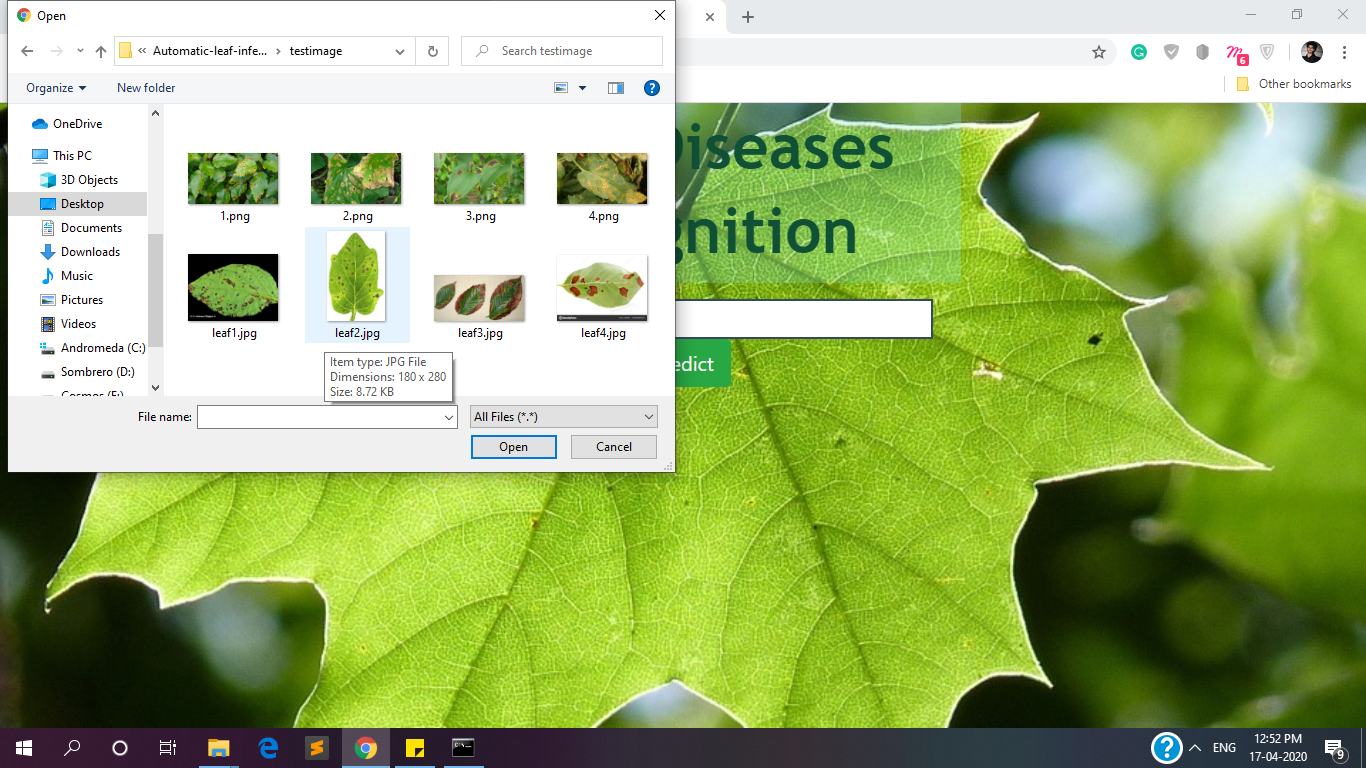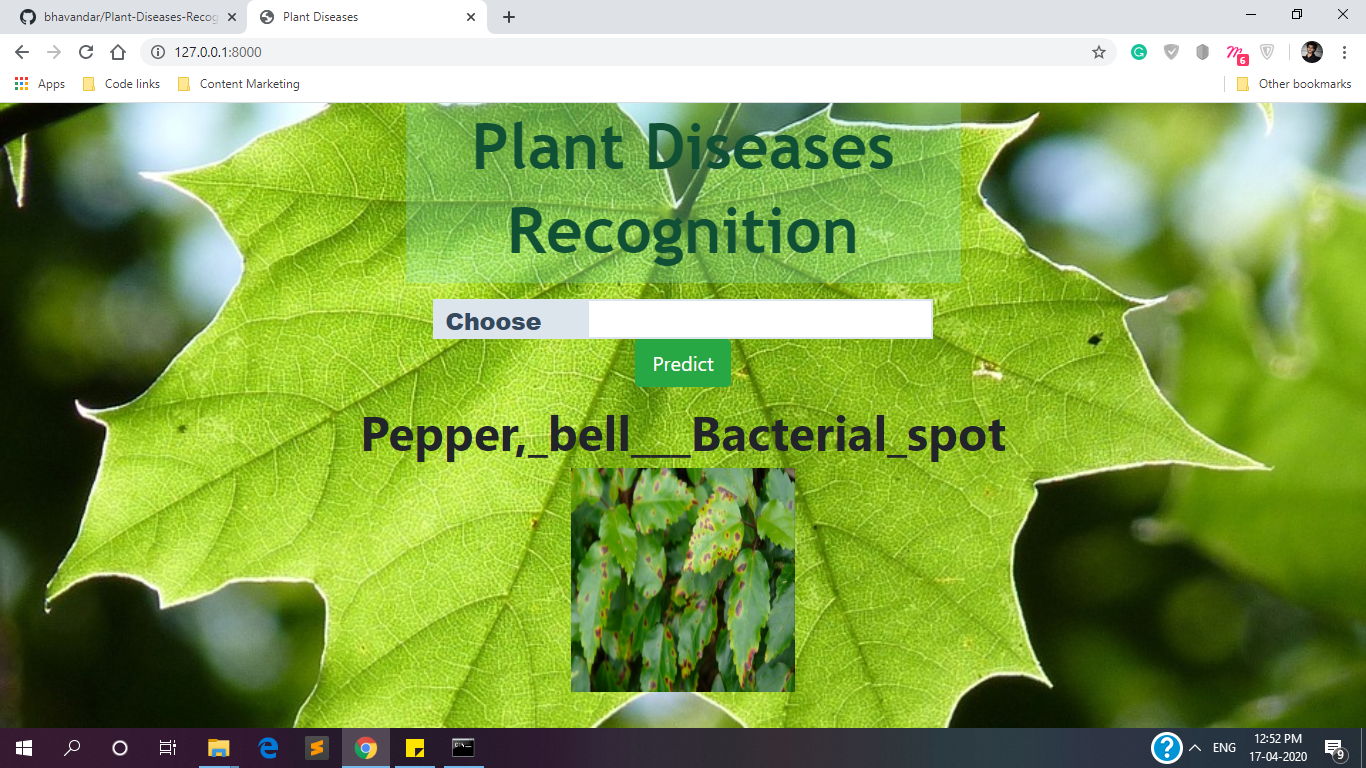This django based web application uses a trained convolutional neural network to identify the disease present on a plant leaf. It consists of 38 classes of different healthy and diseased plant leaves. The 38 classes are:
- Apple-> Apple scab
- Apple-> Black rot
- Apple-> Cedar apple rust
- Apple-> healthy
- Blueberry-> healthy
- Cherry-> Powdery mildew
- Cherry-> healthy
- Corn-> Cercospora leaf spot (Gray leaf spot)
- Corn-> Common rust
- Corn-> Northern Leaf Blight
- Corn-> healthy
- Grape-> Black rot
- Grape-> Esca (Black Measles)
- Grape-> Leaf blight (Isariopsis Leaf Spot)
- Grape-> healthy
- Orange-> Haunglongbing (Citrus greening)
- Peach-> Bacterial spot
- Peach-> healthy
- Pepper, bell-> Bacterial spot
- Pepper, bell-> healthy
- Potato-> Early blight
- Potato-> Late blight
- Potato-> healthy
- Raspberry-> healthy
- Soybean-> healthy
- Squash-> Powdery mildew
- Strawberry-> Leaf scorch
- Strawberry-> healthy
- Tomato-> Bacterial spot
- Tomato-> Early blight
- Tomato-> Late blight
- Tomato-> Leaf Mold
- Tomato-> Septoria leaf spot
- Tomato-> Spider mites (Two-spotted spider mite)
- Tomato-> Target Spot
- Tomato-> Tomato Yellow Leaf Curl Virus
- Tomato-> Tomato mosaic virus
- Tomato-> healthy
- Python
- Tensorflow
- Keras
- Django
- PIL
- Numpy
This application requires Python 3.6 or higher
-
Download the repository by clicking on the download button or type the following command in CMD to clone the repository:
git clone https://github.com/saroz014/Plant-Diseases-Recognition.git -
Download model from the following link and paste it in the
\plant_diseases\plant_appfolder: https://drive.google.com/file/d/1FZXraDDPqbRTX-QeiQclfojgtoLddxQ_/view -
(Optional) Create a virtual enviourment. Refer this tutorial to learn how to create a virtual enviourment: https://www.youtube.com/watch?v=APOPm01BVrk If you create a virtual enviourment, make sure it is activated and you execute all commands from within the virtual enviournment. Skip this step if you are unsure about how it works.
-
Install required packages:
pip install -r requirements.txt -
Navigate to
\plant_diseasesdirectory and run the application with the following command:python manage.py runserver -
A link will appear in your command prompt. Copy this link and paste it in your browser, press enter.
-
Your application is running. Choose any infected image to get results.


